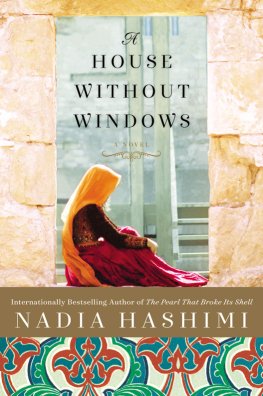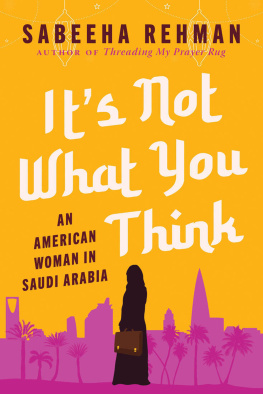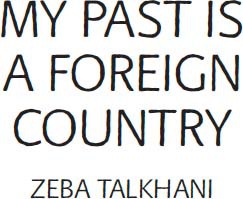Contents
About the Author
Zeba Talkhani has written for the Saudi Gazette , the Manipal Journal , gal-dem , Wasafiri and the Nasty Women anthology. She works in publishing and is a passionate advocate for BAME voices in the publishing industry. She was born in Sirsi, South India, in 1991. She currently lives in London.
First published in Great Britain in 2019 by Sceptre
An Imprint of Hodder & Stoughton
An Hachette UK company
Copyright Zeba Talkhani 2019
The right of Zeba Talkhani to be identified as the Author of the Work has been asserted by her in accordance with the Copyright, Designs and Patents Act 1988.
All rights reserved.
No part of this publication may be reproduced, stored in a retrieval system, or transmitted, in any form or by any means, without the prior written permission of the publisher, nor be otherwise circulated in any form of binding or cover other than that in which it is published and without a similar condition being imposed on the subsequent purchaser.
A CIP catalogue record for this title is available from the British Library
Hardback ISBN 9781473684065
Trade Paperback ISBN 9781473684072
eBook ISBN 9781473684089
Hodder & Stoughton Ltd
Carmelite House
50 Victoria Embankment
London EC4Y 0DZ
www.sceptrebooks.co.uk
For my parents
Yasmin Khan and Riyaz Talkhani
Prologue
I was four when I ran away from home for the second time. The first time, a police officer found me and brought me home, along with a big packet of crisps and a softie ice cream. I do not know how he figured out where I lived or whom I belonged to. I did not speak a word of Arabic and had no sense of direction. I think he must have had some help from the building caretakers in the area. The second time, the ordeal lasted much longer.
We lived in an apartment building in Jeddah at the time and Mama opened the door to drop something off at our neighbours, the ones who lived in a flat opposite ours. I saw my chance and slipped out from behind her. There were four flats on each floor and the building had a caretaker. In Saudi Arabia, a caretaker is called a haris , which roughly translates from Arabic to lion or guardian. Every apartment building in Jeddah that we lived in had a haris . A wall and a main gate surrounded our building and the front porch was a safe place to play in.
It was a hot afternoon and when I reached the main entrance of the building, my feet faltered. On the chair by the door, the haris was sitting with a cap over his face. Maybe he was sleeping. I decided to risk it and took a few steps towards the gate. Just when I thought I had managed my escape, an arm caught me by the wrist and pulled me back. I screamed. The haris laughed. He asked me something in Arabic. I replied in Urdu. I felt understood when I explained how I was leaving home because my parents did not love me any more, that they loved my younger brother Raiyan a lot more. He nodded sympathetically and patted the granite step beside his chair. I sat down.
Mama and Raiyan were a couple of floors above and Papa was at work. I missed the people who surrounded me in India. Jeddah felt lonely. Time passed in silence and I got bored. The azaan (usually heard from the minaret of a mosque) filled the silence with its call for the afternoon prayer. The haris stood up and asked me to follow him. He knocked on the door of a flat on the ground floor of the building. A man opened the door and they exchanged greetings. The flight of stairs leading up to Mama and Raiyan was beside this mans door.
I decided it was time to go back home. But the haris had different plans. When I tried to pull away, his grip tightened around my wrist and he pulled me inside the flat with him. Once inside, I noticed the flat was nothing like ours. There was a smell to this space I will never forget. A mix of burned meat, body odour and qahwa , an Arabic coffee infused with cardamom. The sofa faced away from the main door and the windows were plastered with black sheets, making it impossible to tell whether it was night or day. The men served themselves qahwa and the haris offered me something to eat; I cannot remember if it was a biscuit or a packet of crisps. I refused the offer.
I wanted to be let out but was not sure how to ask the men to unlock the door for me. When the haris patted the sofa beside him, I did not move. I hoped that by staying close to the door, I could communicate my need to pass through it. While the men continued speaking, I considered throwing a tantrum, but something warned me to not make these men angry.
I do not remember much from those years in that apartment building, but the floor plan of this strangers house is imprinted in my memory. Whenever I come across that stale smell I remember the fear I felt that day and how the minutes stretched ahead of me. I remained silent and did not voice my desire to escape.
After what felt like hours, there was a knock on the door. It was loud and incessant. The men were not expecting anyone. They stood up and the haris came to the door while I stayed close, waiting for the right moment to escape from behind him. It was our neighbour, the one who lived opposite us. I need not have worried about making my escape because she was there for me. She shouted at the haris for his irresponsible behaviour. The haris shrugged his shoulders and let me pass. I ran into our neighbours arms. She took me upstairs to where Mama was standing by our open front door, crying. I could not wait to be in her arms, to feel safe again. When I saw her, I slid out of my neighbours arms and ran towards Mama. But before I could get too far, the neighbour grabbed me and slapped me across the face. Never run away from home, she scolded. Do you know how worried your mother was? she asked. Mama watched in silence.
Mamas silence was a big part of my early years and this silence cost us both. This book, too, is as much about Mamas silences as it is about my words, and the lingering discordance this caused.
It is this discordance that I write about here and it is this discordance that has driven me and shaped me, the inability to look away, to ignore, to forget, to be mollified, and to believe that nothing out of the ordinary has happened, is happening.
Part One
Sirsi, Honnavar and Jeddah
One of my earliest childhood memories is of Mama shielding her thoughts and memories from me. Despite her best efforts, I managed to steal from Mama three stories about my birth that are dear to me. The first story is about my uncle, Mamas eldest brother. She once told me about how he woke up before dawn every morning, filled a thermos with a hot drink and took a short cut through the fields to get to the hospital where Mama was recovering from my birth. He stayed with her for a while each morning, making sure she had everything she needed before heading to the bank where he worked as a clerk.
Though she mentioned it in her retelling, I have forgotten what it was that he brought her in that thermos and I am too afraid to ask. Memories are precarious by nature and I am scared that Mama might take this story back from me, deny it ever happened, tell me I am misremembering.
The second story is a fact. My name was Aisha before it was Zeba. It was Mamas wish to have a daughter named Aisha. After my birth, when Mama revealed my name to the rest of the family, her mother-in-law, my dadi, told Mama that I would grow up to be mentally unstable like another Aisha known to the family. Mama decided not to risk it and changed my name to Zeba. Growing up, I thought of Aisha as an invisible twin. She was the prettier one, she had great hair, she wore beautiful dresses, and she was Mamas favourite. Often I would wonder what life would be like if I was her.








